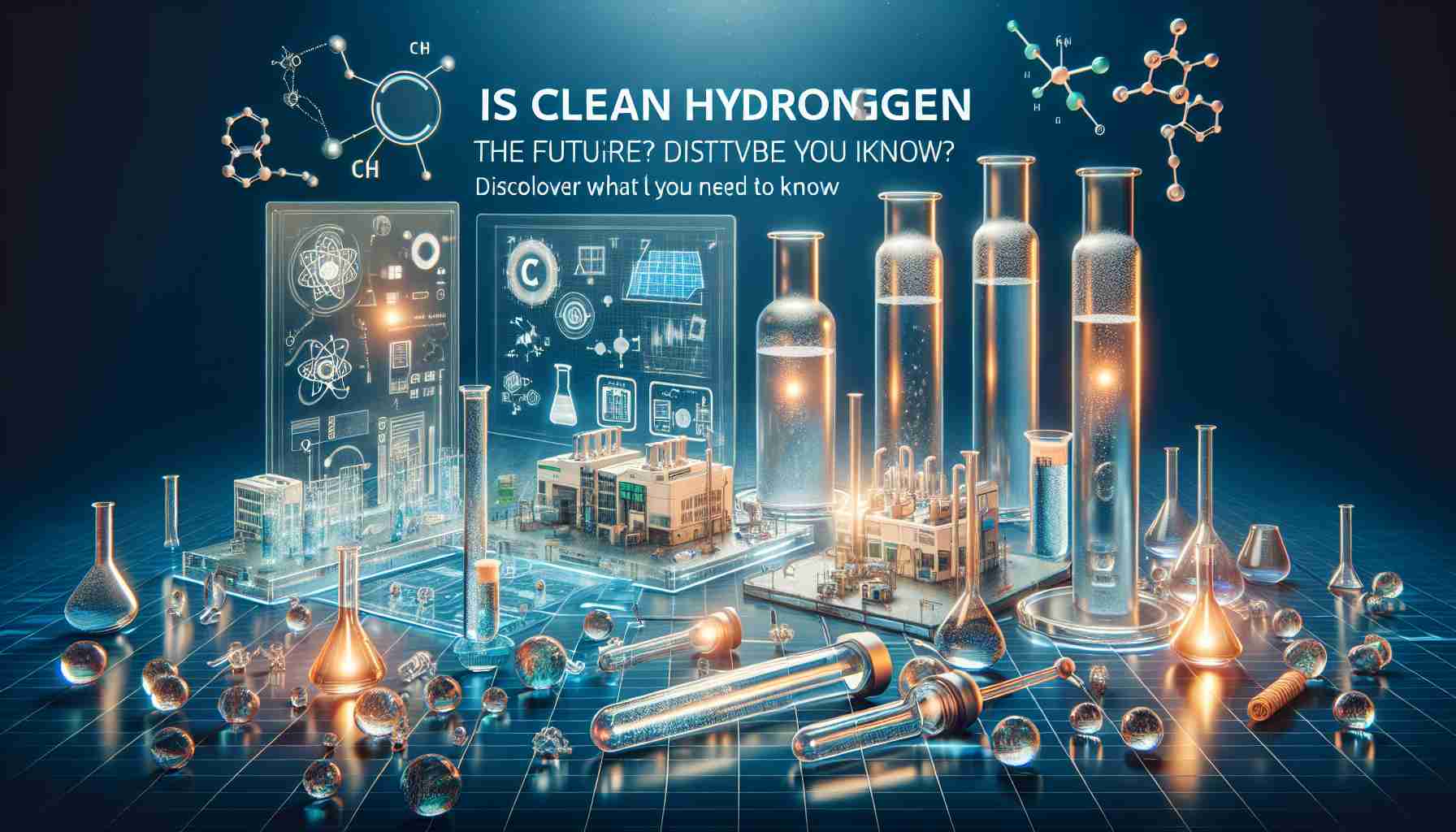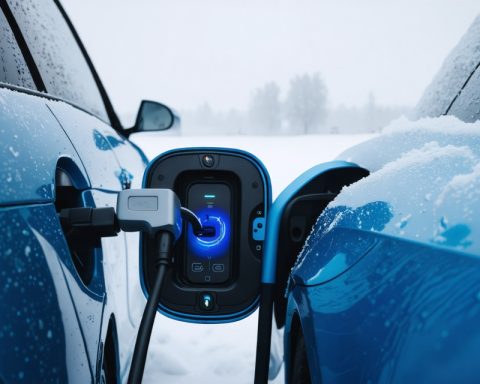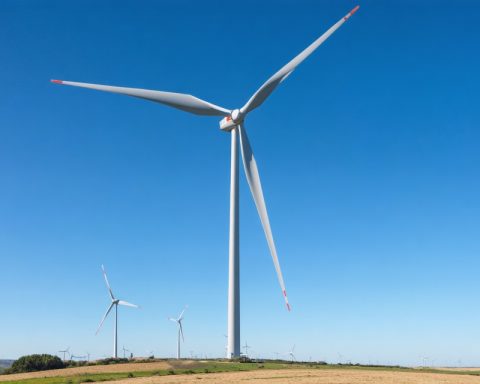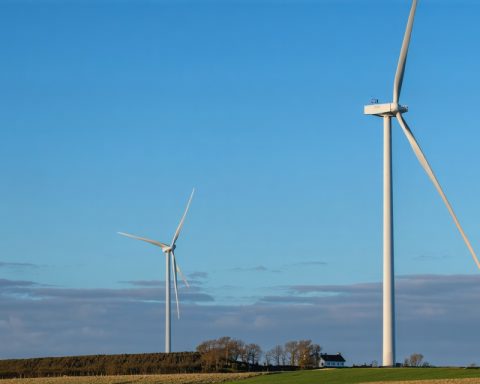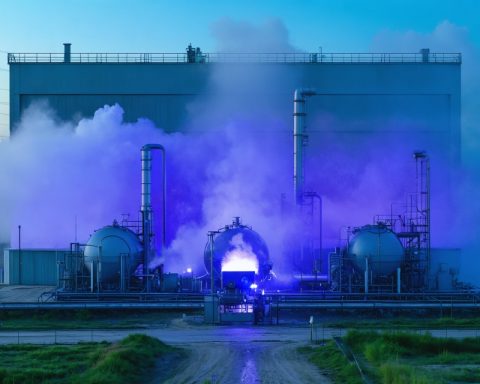Understanding the Clean Hydrogen Landscape
The clean hydrogen sector is evolving rapidly, with organizations dedicated to providing unbiased journalism that caters to industry leaders and decision-makers. This sector aims to deliver crucial news and insightful analysis that cuts through the noise surrounding hydrogen advancements.
With an emphasis on transparency, these platforms strive to inform readers about the real opportunities and challenges within the clean hydrogen market. By focusing on substance rather than sensationalism, they seek to equip executives with the knowledge necessary for informed decision-making in a constantly shifting environment.
The drive for clean hydrogen has garnered significant attention as nations and companies aim to reduce carbon emissions and transition towards more sustainable energy sources. The industry is filled with potential, yet it is imperative to view it through a critical lens. By providing deep dives into market trends and technological innovations, these journalistic efforts highlight both the promise and the pitfalls of hydrogen investments.
As businesses navigate this complex landscape, staying informed through reliable and engaging reporting is vital. Understanding the dynamics of clean hydrogen will empower industry leaders to make strategic decisions that align with both environmental goals and economic realities. In a world increasingly focused on sustainability, the future of clean hydrogen looks promising, but only for those who are well-prepared and informed.
The Broader Implications of Clean Hydrogen Adoption
The shift towards clean hydrogen is not merely a technical marvel; it represents a transformative wave in how society, culture, and the global economy will interact with energy. As nations invest in hydrogen infrastructure, we’re witnessing a gradual redefinition of energy security, job creation, and economic competitiveness. Significant investments are occurring in places like the European Union and Japan, where governments are allocating billions towards hydrogen projects as part of their green transition initiatives.
Furthermore, the embrace of clean hydrogen promises to alleviate urban pollution, especially in industrial and transport modes, which could lead to a healthier population. Hydrogen’s versatility means it can decarbonize sectors that are traditionally hard to abate, such as heavy-duty transport, steel production, and heating, thereby fundamentally reshaping cultural norms around energy consumption.
However, while the potential seems bright, the environmental implications are complex. The production process of hydrogen—particularly “green” hydrogen from renewable sources—requires significant water and land use. This brings into question sustainability practices, as scaling up could lead to competition for these resources.
As we look ahead, the rising trends point towards decentralized and localized hydrogen solutions, which could empower communities and reduce reliance on centralized energy production. To ensure a sustainable future, it is crucial that stakeholders engage in informed, responsible planning. The long-term significance of clean hydrogen will hinge on such decisions, ultimately determining both its impact on the environment and society’s transition to a low-carbon economy.
Unlocking the Future: A Deep Dive into Clean Hydrogen Innovations and Trends
Understanding the Clean Hydrogen Landscape
The clean hydrogen sector is undergoing a transformative phase, marked by rapid advancements and an increasing focus on sustainability. As the global community strives to meet carbon emission targets, clean hydrogen emerges as a pivotal energy solution with immense potential. Here’s a comprehensive look at key aspects shaping the clean hydrogen landscape.
Pros and Cons of Clean Hydrogen
Pros:
– Carbon Neutrality: Clean hydrogen can significantly reduce greenhouse gas emissions when produced from renewable energy sources.
– Energy Storage: Hydrogen serves as an effective means to store energy, particularly from intermittent renewable sources like wind and solar.
– Versatility: It can be utilized across various sectors, including transportation, industry, and power generation.
Cons:
– Production Costs: Currently, the production of clean hydrogen, particularly green hydrogen (derived from renewable energy), remains expensive compared to fossil fuels.
– Infrastructure Challenges: There is a lack of widespread infrastructure for hydrogen distribution and storage, which can pose logistical challenges.
– Energy Loss: The conversion processes from electricity to hydrogen and back can involve energy losses, impacting overall efficiency.
Innovations in Clean Hydrogen
Recent technological breakthroughs are enhancing the efficiency and cost-effectiveness of clean hydrogen production:
– Electrolyzer Advancements: Innovations in electrolyzer technology, including the use of advanced materials, are improving the efficiency of water splitting to produce hydrogen.
– Hydrogen Storage Technologies: New methods for hydrogen storage, such as metal hydrides and liquid organic hydrogen carriers (LOHCs), are being developed to simplify transportation and increase density.
– Carbon Capture Integration: Combined technologies that integrate hydrogen production with carbon capture can result in lower emissions overall, enhancing the sustainability of hydrogen.
Market Trends and Insights
The clean hydrogen market is poised for exponential growth:
– Government Initiatives: Many countries are investing heavily in hydrogen infrastructure, with significant funding and supportive policies aimed at promoting clean hydrogen technologies. For example, the European Union has laid out a comprehensive hydrogen strategy, with plans to scale up production and deployment.
– Corporate Investments: Major corporations in energy, automotive, and heavy industry are shifting investments toward hydrogen technologies, recognizing its potential to decarbonize operations and secure competitive advantages.
– Global Collaborations: International partnerships are forming to share knowledge, drive innovation, and create standardized practices in hydrogen production and usage.
Limitations of Current Hydrogen Technologies
Despite the promise of clean hydrogen, certain limitations still exist:
– Dependence on Renewable Energy: The production of green hydrogen is heavily reliant on the availability of renewable energy, which can vary by location and weather.
– Regulatory Hurdles: Different national regulations on hydrogen production and usage can create barriers to entry in some markets, complicating global trade.
Pricing and Economic Outlook
The economic landscape for clean hydrogen is shifting:
– Decreasing Costs: As technology advances and production scales up, the costs of clean hydrogen are expected to decline. Reports project that the price of green hydrogen could fall to below $1.50 per kilogram by 2030 in certain regions.
– Investment Opportunities: The clean hydrogen sector presents a range of investment opportunities for both established energy companies and startups focused on innovation in hydrogen production and applications.
Future Predictions and Sustainability
Looking ahead, clean hydrogen is predicted to play a critical role in global energy systems:
– Decarbonization Pathway: Clean hydrogen can significantly contribute to achieving net-zero emissions targets across various sectors, acting as a key element in the decarbonization of hard-to-abate industries like steel and cement.
– Increased Adoption: As technologies mature and infrastructure develops, it is expected that hydrogen will become a mainstream energy carrier, with a prominent role in the energy transition.
For more detailed insights and ongoing updates on clean hydrogen developments, visit Hydrogen Insight.
This in-depth understanding of the clean hydrogen landscape empowers industry leaders to make informed decisions, fostering innovation, investment, and a sustainable future for this promising energy source.
